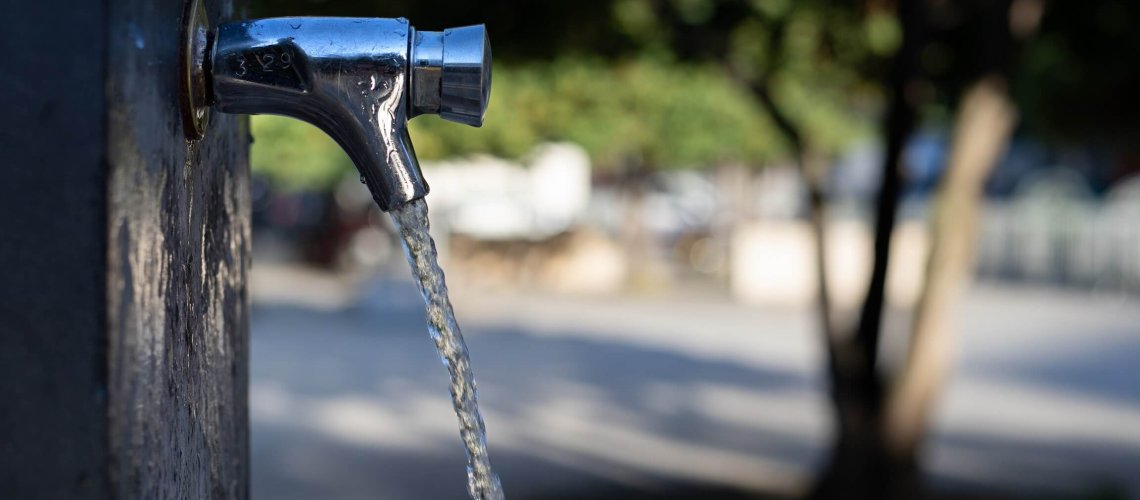“We have forgotten how to be good guests, how to walk lightly on earth and its other creatures do.
– Barbara Ward
It was 8pm in the night. My family and I were sitting around the dinner table, the last leavings of our supper in front of us, as we indulged in casual conversation and the delicious dessert that my mother had made. I don’t remember what the conversation was about, but it must have been something important to keep my sister and me tied to the table and away from our screens for almost an hour. Probably fighting over who would do what chores as our watchman and his wife – who worked as our maid – had gone to their village for the weekend.
My eyes casually lingered from the table to the clock in the living room, contemplating how decent it would be to jump into bed right after, when I saw the fan was still on. I walked up to the switchboard to switch it off when I heard it. It was the familiar low rumble of our water motor. Confused and aghast, I yelled out, “Who let the motor on?”. “Oh Shucks!”, I heard my sister shriek from the other corner of the room. I threw her an annoyed look before I sprinted down the stairs and switched off the main pump button down, in the cellar. I could hear the gushing of the water break through the silence of the night as I saw small puddles already forming. I trooped up the stairs, calculating in my head and panting in my heart.
Since our watchman was away, the duty of switching on the motor at different intervals during the day fell upon me or my sister. Twice a day we trudged down and back again the two-story building, in our mother’s hopes that we would maybe lose some weight and sass this way, to flip the motor switch, idle about there for 10-15 minutes, turn it off and climb back, with our declining age and agility starkly showing. But the 15-minute mark was sacred. The motor couldn’t be on for more than 20 minutes, max 30 minutes if the overhead tanker had really dried up. Because not only would it fry the machine but also flood the drainage.
And both of them happened that night. The motor thankfully wasn’t too worse for the wear, we got to know later. But the spillover, that was something. As I climbed back, I realized that my sister must have switched it on when she had come back from her duty almost around 6:30pm. That was one and a half hour ago, six times over the usual limit and three times over the maximum limit. I couldn’t even imagine the amount of water that was wasted. Until I was forced to. I remembered that earlier that evening, my father had thought to take it off our hands and switched on the motor. The tanker was already to the brim when my sister had switched it on again. Pure dismay spilled from within just like the water might have from the tanker. I couldn’t believe it.
And if you think I was overreacting, like my brain tried to rationale with me later, I did what anyone would do to get some answers. I googled. And what I found wasn’t pretty. Even the smallest of household pump pushes out approximately 50 liters of water per minute. Even if I take that wary number and assume that all of the water was just pumped over and above a full tank, that still means we wasted around 4500 liters of water that night. That is equivalent to one full day water consumption for up to 45 people. That is equivalent to flooding a whole room in your house, almost up to your knees. I just didn’t know how to process it, or more importantly, how to fix it. There was no point crying over spilled water. But it still made me well up at the sheer magnitude of our mistake.
I was just in the middle of interrogating myself on why I hadn’t caught the humming sound earlier, when it made me think how I had picked it up in the first place. It was because I had gotten up to switch off the running fan. That one moment of being discerning and immediately getting up to fix that mistake helped us prevent a bigger blunder. We might have gone on chatting after dinner, and maybe even gone to sleep, probably realizing much later – 3 or 4 or 5 hours later – which would have meant even more wastage, even more disappointment, even more burden on the already suffering environment. But that small intuitive action helped helm the spill.
We think that caring about the environment is either unto the bigger bureaucrats like the government or the UN, or it is with the non-conforming rebels and protestors who have made it their life. We think that the role of us regular fellows is to just share, repost and retweet the hottest gossip on climate change and move along the next day. What else can we do more than that? What other power do we have to take upon the charge of transforming the entire environment?
Well, that’s the thing. Caring about the environment doesn’t only mean making laws and holding conferences. It is not a blame that we can pass on and say, “Not my job”. And neither is it so difficult. All it takes is to just be mindful of the little things. Things like not leaving your tap running when you are brushing, tucking away that used wrapper in your bag to throw it in a dustbin later, always remembering to switch off the lights (and fans!). Taking care of the environment is not just to do with laws and lecture, but also small things that you do consistently time and again to just do your part. Otherwise, our future generations will have to run to clean our messes, all the while yelling – who left the tap on?







